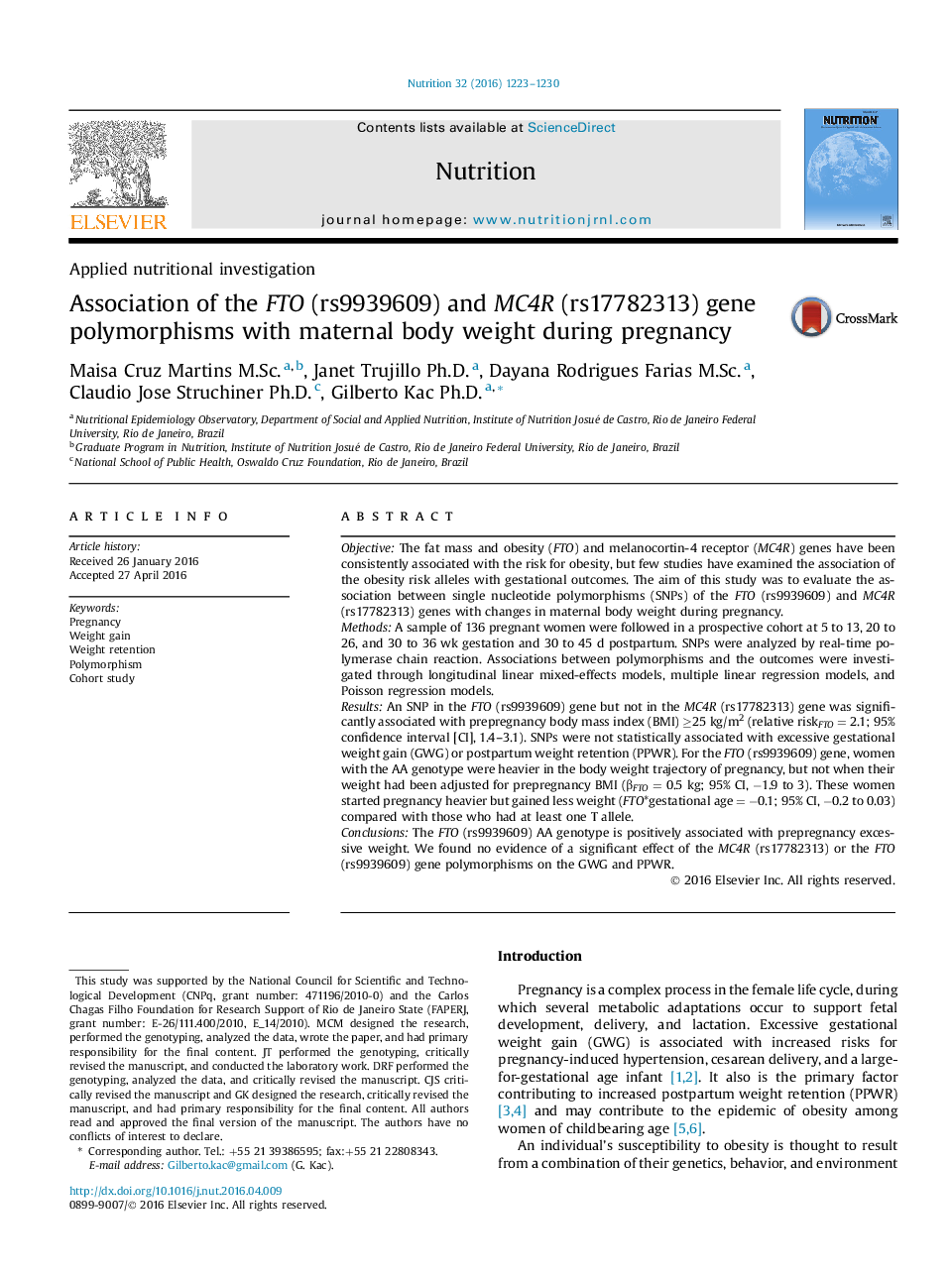| کد مقاله | کد نشریه | سال انتشار | مقاله انگلیسی | نسخه تمام متن |
|---|---|---|---|---|
| 3276072 | 1589665 | 2016 | 8 صفحه PDF | دانلود رایگان |

• Single nucleotide polymorphism (SNP) fat mass and obesity-associated (FTO) gene (rs9939609) was significantly associated with prepregnancy excessive weight.
• SNP melanocortin-4 receptor (MC4R) gene (rs17782313) was not associated with prepregnancy excessive weight.
• No associations were found between the MC4R or the FTO gene polymorphisms and gestational weight gain and postpartum weight retention.
ObjectiveThe fat mass and obesity (FTO) and melanocortin-4 receptor (MC4R) genes have been consistently associated with the risk for obesity, but few studies have examined the association of the obesity risk alleles with gestational outcomes. The aim of this study was to evaluate the association between single nucleotide polymorphisms (SNPs) of the FTO (rs9939609) and MC4R (rs17782313) genes with changes in maternal body weight during pregnancy.MethodsA sample of 136 pregnant women were followed in a prospective cohort at 5 to 13, 20 to 26, and 30 to 36 wk gestation and 30 to 45 d postpartum. SNPs were analyzed by real-time polymerase chain reaction. Associations between polymorphisms and the outcomes were investigated through longitudinal linear mixed-effects models, multiple linear regression models, and Poisson regression models.ResultsAn SNP in the FTO (rs9939609) gene but not in the MC4R (rs17782313) gene was significantly associated with prepregnancy body mass index (BMI) ≥25 kg/m2 (relative riskFTO = 2.1; 95% confidence interval [CI], 1.4–3.1). SNPs were not statistically associated with excessive gestational weight gain (GWG) or postpartum weight retention (PPWR). For the FTO (rs9939609) gene, women with the AA genotype were heavier in the body weight trajectory of pregnancy, but not when their weight had been adjusted for prepregnancy BMI (βFTO = 0.5 kg; 95% CI, −1.9 to 3). These women started pregnancy heavier but gained less weight (FTO*gestational age = −0.1; 95% CI, −0.2 to 0.03) compared with those who had at least one T allele.ConclusionsThe FTO (rs9939609) AA genotype is positively associated with prepregnancy excessive weight. We found no evidence of a significant effect of the MC4R (rs17782313) or the FTO (rs9939609) gene polymorphisms on the GWG and PPWR.
Journal: Nutrition - Volume 32, Issues 11–12, November–December 2016, Pages 1223–1230